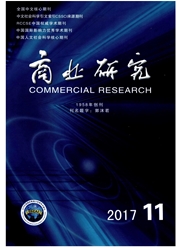

 中文摘要:
中文摘要:
19世纪政治经济学家搜集、整理史料的工作填补了传统贸易史研究的空白,但其在理论分析上的缺陷又招致经济学家批判。古典经济学派继而提出"自然禀赋理论"来解释交易行为的分工基础,新古典经济学派则将贸易模式的持续变革引向"要素积累与成本理论"。晚兴的制度经济学派发现贸易参与者制度建设方面的特殊效用后,试图通过"产权论"、"声誉机制"等理论重新阐释贸易行为。随着新史学兴起,史学家对经济学的建构范式也提出质疑,并提出比较文明及整体史观的研究路径。但是,在当前区域贸易研究中实现各学科路径的有效整合并非易事。或许只有坚持历史逻辑为前提,将定性分析与定量分析相结合,全面把握研究视角才能更深入理解贸易互动影响下的区域文明。
 英文摘要:
英文摘要:
Political economists' work collecting and collating historical resources in 19 th century had filled the gap in trade studies in traditional historians,but their deficiencies of theoretical analysis had been criticized by economists.Then Classical Economics School put forward the "natural endowment theory"to explain the division of labor based on trading behavior,and Neoclassical Economic School led the continuous transformation of trade patterns to "factor accumulation and cost theory". After discovering the special utility of trade actors' institution construction,Institutional Economics School tried to reinterpret the trade behavior through the "theories of property right"and "reputation mechanism". With the rise of new historiography,historians have called in question the construction paradigm of economics,and created the research approaches of"Comparative history"and"the Global history". However,it's not easy to realize an effective integration of various disciplinary approaches in the current regional trade research. Maybe it's the only way to be on the base of historical logic,combining qualitative analysis with quantitative analysis and maintaining a comprehensive research perspective,we can fully understand the regional civilization under the influence of trade interaction.
 同期刊论文项目
同期刊论文项目
 同项目期刊论文
同项目期刊论文
 期刊信息
期刊信息
